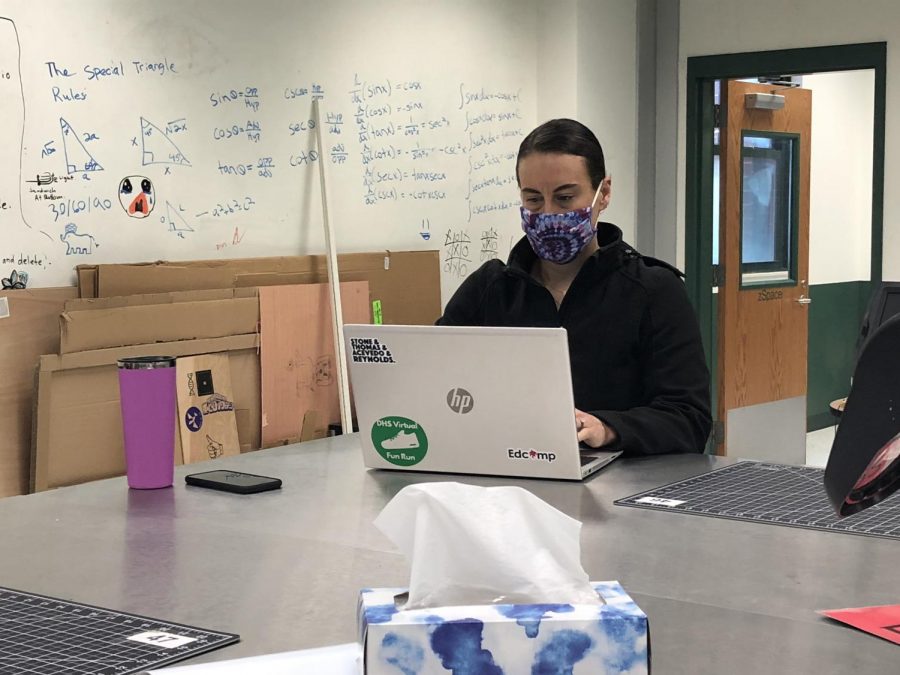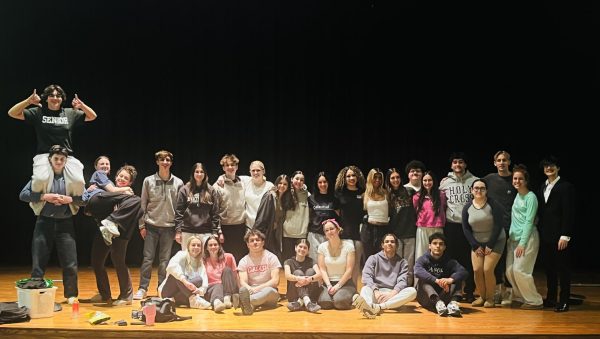Part 3 – Return to Full School at DHS?
What do teachers think?
Technology Instruction Coach Jen Thomas spends her busy days offering helpful strategies and troubleshooting to teachers who have been thrust headfirst into remote learning.
Editors’ Note: All week the Spectrum will be publishing a series of articles that take a look at what a full return to DHS will look from a variety of perspectives.
After months of a hybrid learning model, change is right around the corner for DHS. Due to new guidelines set by MA governor Charlie Baker, K-12 schools will likely be required to return full time before the end of the 2020-2021 school year. The general consensus among students is mixed. To some, this is the light at the end of the tunnel while to others this is an added stressor to an already hectic year.
While students’ input is important, what are teachers’ opinions on bringing everyone back to school?
Some teachers are all on board with returning full time, especially when considering the classes they teach. “In terms of my class, I’m definitely waiting for students to come back because the nature of my class is hands-on, and I want my students to do hands-on things again,” said Jeffery Martin, an engineering teacher here at DHS.
Due to the interactive environment of some classes, specifically STEM classes, some teachers have been eagerly awaiting the opportunity to resume the usual assignments and activities they couldn’t do with only half the class. “Seeing everyone half day is one thing, but having a whole class in front of you makes it easier working with kids,” said chemistry teacher Taylor Souza.“Looking at this from a workload perspective, it’ll help us move through the unit quicker since I won’t have to repeat the same lesson twice. We’ll be able to progress faster and get kids more prepared for AP Chem.”
Some teachers are also ready for a full return for the sake of their student’s well-being. It’s no secret that kids’ mental health has declined in the past year with everything that’s been going on, and several teachers agree that gaining back some of that social interaction that’s been so scarce recently is going to help struggling kids.
“I think for the kids they need to be back in class just to set up a structure and routines,” said math teacher Marcia Vieira.“I know for me I would much rather teach them in class rather than remote. I think there’s more of a relationship build up when you get to see them every day.”
Several factors have gone into determining how teachers feel about this change, and while some are all for it, the general agreement is mixed. Some are reasonably worried about the health risks and what’s being put at stake if DHS returns full time.
“My fear is that we’ll see an uptick in student to student transmission,” said English teacher Ann Fifield. “It might work for K-8, but high school should keep the hybrid schedule until students can be vaccinated. Too many high school kids are not abiding by the safety protocols: masking properly, distancing, avoiding large groups, not driving around in cars together. They are also out working in service jobs, and playing sports where they could easily pick up the virus and take it home or bring it to school.”
Departments in the arts have been struggling ever since the pandemic hit, with multiple theaters shutting down and productions closing, and with Dartmouth High’s music program being so well known, the music department has been ready to safely get students back on stage and performing.
“I have been dreaming about being together with the full DHS Orchestra since last March, and I am thrilled that we are able to have a spring concert in May. If we do return in full, we are extremely fortunate in that we will be able to spread out in the auditorium and maintain a distance of 6 ft. between students,” said orchestra director Heather Church.
The truth is, this debate isn’t as cut and dry as some may think. Different subjects have different needs, with some functioning just fine on the hybrid schedule while others require a full and interactive class to thrive. Depending on the department taught, teachers’ opinions range from excitement to worry, but regardless, it can go without saying that for this decision to go well the student body and staff must work together to follow guidelines to not only make this a smooth and healthy transition, but to also protect others.









